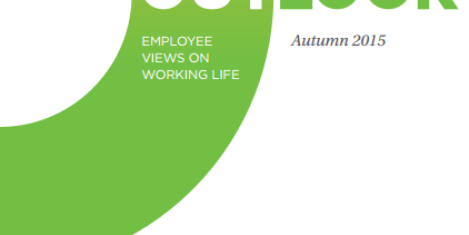November 1, 2015
UK productivity undermined by rule-heavy workplaces, claims report 0
 Employers can unleash the productivity of their workers by allowing them more scope to use their initiative, create more stimulating work and reduce the burden of unnecessary rules and procedures, according to a new report which considers productivity from the employees’ perspective. The latest Employee Outlook Survey from the Chartered Institute of Personnel and Development (CIPD), surveyed over 2,000 UK employees, asking what enabled them to be most productive. The most common responses were interesting work (40 percent), being able to use their own initiative (39 percent) and being given tasks which complement their skills (25 percent). On the other hand, the most common hurdles to employee productivity were unnecessary rules and procedures (28 percent), not having the resources available to do their jobs (28 percent) and office politics (24 percent).
Employers can unleash the productivity of their workers by allowing them more scope to use their initiative, create more stimulating work and reduce the burden of unnecessary rules and procedures, according to a new report which considers productivity from the employees’ perspective. The latest Employee Outlook Survey from the Chartered Institute of Personnel and Development (CIPD), surveyed over 2,000 UK employees, asking what enabled them to be most productive. The most common responses were interesting work (40 percent), being able to use their own initiative (39 percent) and being given tasks which complement their skills (25 percent). On the other hand, the most common hurdles to employee productivity were unnecessary rules and procedures (28 percent), not having the resources available to do their jobs (28 percent) and office politics (24 percent).









 The Government is being urged to reassess its plans to request an opt-out from the EU Working Time Directive, when it seeks to renegotiate the terms of the UK’s membership of the EU. The Directive stipulates a 48 hour working week, which the Government has argued is stifling competitiveness and flexibility. According to research by
The Government is being urged to reassess its plans to request an opt-out from the EU Working Time Directive, when it seeks to renegotiate the terms of the UK’s membership of the EU. The Directive stipulates a 48 hour working week, which the Government has argued is stifling competitiveness and flexibility. According to research by 


















June 8, 2015
Three reasons why National Work From Home Day has it all wrong
by Mark Eltringham • Comment, Flexible working, Public Sector, Technology
Last Friday was National Work From Home Day in the UK. Each year, the TUC and organisers Work Wise seem to take this as an opportunity to analyse data about the uptake of flexible working and arrive at the wrong conclusions. This year, its analysis of the ONS Labour Force Survey found that the number of people regularly working from home had increased by more than 800,000 since 2005, taking the total to over 4.2 million. These are solid enough data, but what are we to make of TUC General Secretary Frances O’Grady’s conclusion that: “these figures show millions of British workers have adopted homeworking and are enjoying a better work-life balance, while saving time and money on costly commuting that benefits no-one”? There are several reasons to suggest that he’s got that wrong to a large extent.
(more…)